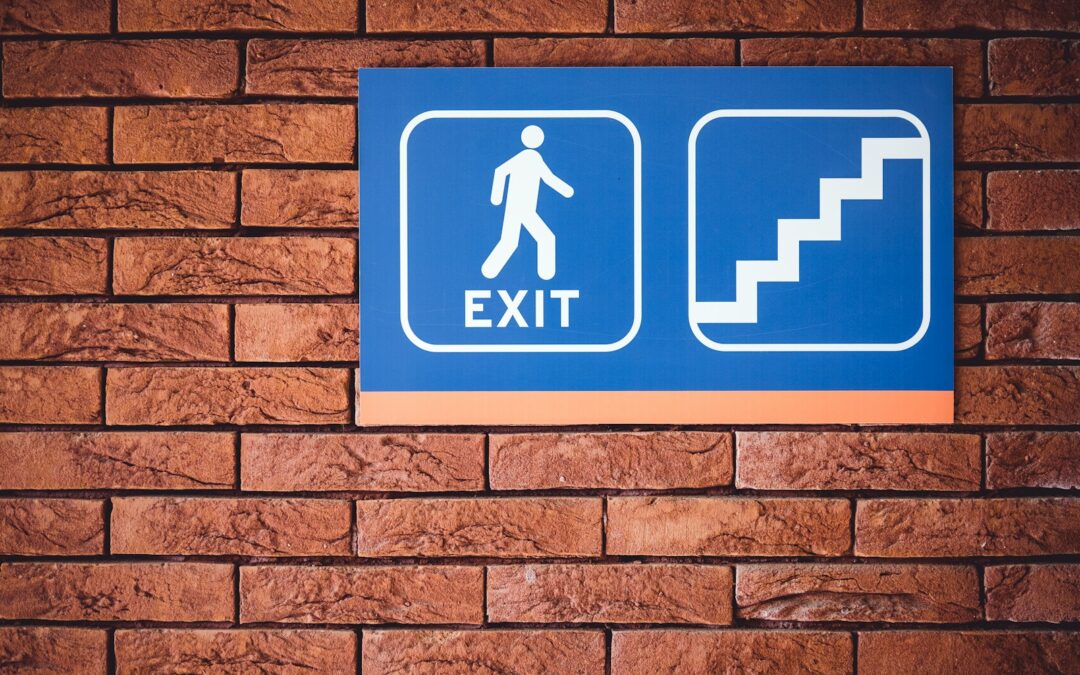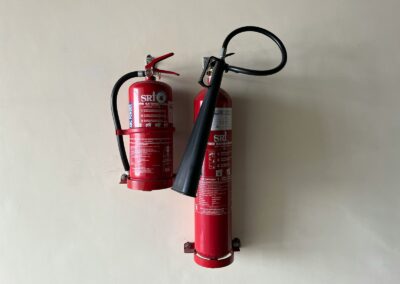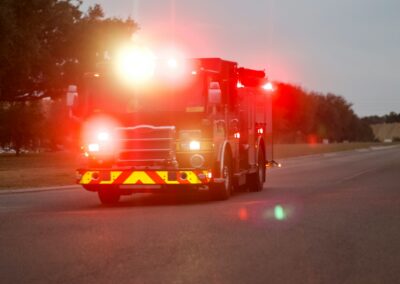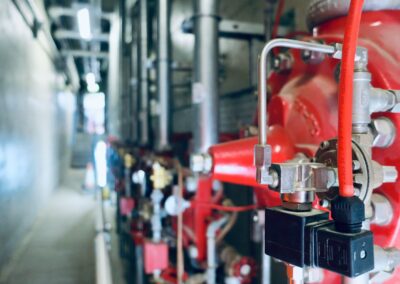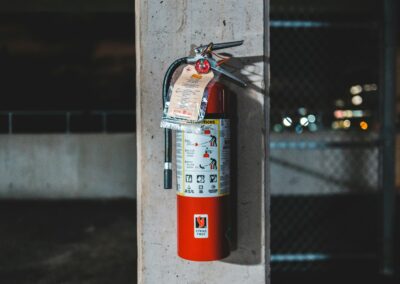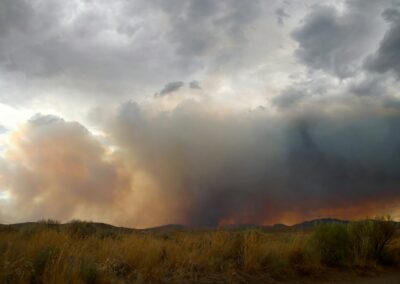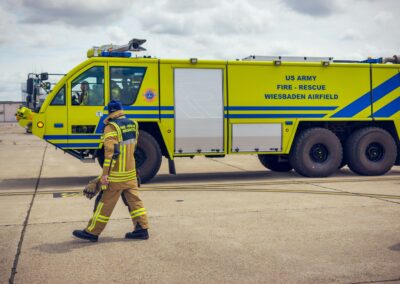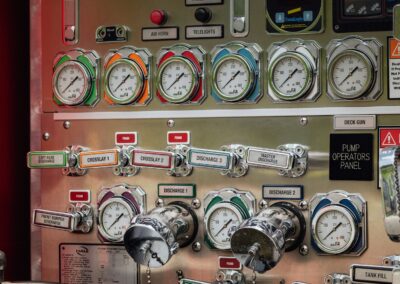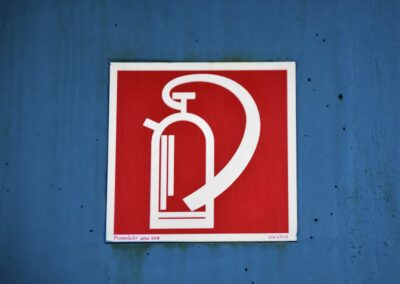Seamless Coordination and Control of Safety Measures in Smart Buildings
Introduction to Advanced Fire Suppression Systems
The integration of advanced fire suppression systems with building management systems represents a significant advancement in fire safety technology. In rapidly developing regions such as Saudi Arabia and the UAE, where urban landscapes are continually evolving, ensuring the safety of high-rise buildings and complex infrastructures is paramount. Traditional fire suppression methods, while effective, often operate independently of other building systems. Advanced fire suppression systems, on the other hand, provide a comprehensive approach by working seamlessly with building management systems to enhance overall safety and efficiency.
Advanced fire suppression systems utilize cutting-edge technologies, including AI and IoT, to detect and respond to fire hazards more effectively. These systems are designed to interface with various building management components, such as HVAC, lighting, and security systems, to ensure a coordinated response in the event of a fire. For instance, when a fire is detected, the suppression system can automatically shut down ventilation to prevent the spread of smoke, activate emergency lighting to guide occupants to safety, and notify security personnel for immediate intervention.
In cities like Riyadh and Dubai, where technological innovation is a driving force behind urban development, the adoption of advanced fire suppression systems aligns with broader goals of creating smart, resilient cities. By integrating these systems into the fabric of modern buildings, city planners and developers can enhance fire safety measures while also improving the overall efficiency and sustainability of urban infrastructures. This proactive approach not only protects lives and property but also reinforces the reputation of these cities as leaders in technological advancement and smart city initiatives.
The Role of AI and IoT in Fire Suppression Systems
Artificial Intelligence (AI) and the Internet of Things (IoT) play crucial roles in the functionality of advanced fire suppression systems. AI algorithms can analyze data from multiple sensors in real time, identifying potential fire hazards before they escalate. This predictive capability allows for early detection and intervention, significantly reducing the risk of extensive fire damage. In technologically progressive regions like Saudi Arabia and the UAE, the integration of AI in fire suppression systems enhances the capability to respond to fire incidents proactively and efficiently.
IoT connectivity enables advanced fire suppression systems to communicate with other building management components, facilitating a coordinated and effective response to fire emergencies. Sensors placed throughout the building can detect changes in temperature, smoke, and gas levels, transmitting this data to a centralized system for analysis. This real-time information allows for immediate action, such as activating sprinklers in the affected area while simultaneously alerting emergency services. The interconnected nature of IoT ensures that all safety measures are synchronized, providing a comprehensive approach to fire suppression.
Furthermore, the integration of AI and IoT in fire suppression systems offers significant benefits in terms of maintenance and monitoring. These systems can continuously monitor their own functionality, detecting any issues that may compromise their effectiveness. This self-diagnostic capability ensures that the system is always in optimal condition, ready to respond to any fire emergency. In smart buildings across Riyadh and Dubai, this advanced level of monitoring and maintenance enhances overall safety and reliability, reinforcing the commitment to creating safe and sustainable urban environments.
Implications for Business Success and Leadership
For business executives, mid-level managers, and entrepreneurs in Saudi Arabia and the UAE, the integration of advanced fire suppression systems with building management systems has significant implications for business success and leadership. Implementing state-of-the-art fire safety technologies can enhance the safety and security of commercial properties, thereby protecting valuable assets and reducing potential liabilities. In regions where real estate and infrastructure development are booming, such as Riyadh and Dubai, ensuring robust fire safety measures is essential for maintaining investor confidence and regulatory compliance.
Effective leadership in the adoption of advanced fire suppression systems involves understanding the strategic importance of these technologies and integrating them into the organization’s overall risk management framework. Leaders must prioritize investment in advanced fire suppression solutions and ensure that their teams are trained to manage and operate these systems proficiently. In the competitive business environments of Riyadh and Dubai, proactive leadership in fire safety can differentiate successful organizations from their peers by demonstrating a commitment to employee safety and operational resilience.
Furthermore, the implementation of advanced fire suppression systems can lead to significant cost savings for businesses. By reducing the incidence of false alarms and ensuring early detection of actual fire events, these systems minimize disruption and potential damage. This operational efficiency translates into lower insurance premiums and reduced downtime, contributing to the overall financial health of the organization. In the UAE and Saudi Arabia, where businesses are constantly seeking ways to optimize performance and reduce costs, the adoption of advanced fire suppression technologies represents a strategic investment in long-term success.
Conclusion
The integration of advanced fire suppression systems with building management systems is transforming fire safety practices, offering enhanced coordination, efficiency, and integration with other smart technologies. In rapidly developing regions like Saudi Arabia and the UAE, the adoption of AI and IoT-enabled fire suppression systems is setting new standards for fire safety. By leveraging these advanced technologies, cities like Riyadh and Dubai are at the forefront of creating safer, more resilient urban environments. For businesses, the implementation of advanced fire suppression systems is essential for protecting assets, ensuring regulatory compliance, and demonstrating leadership in safety and innovation. As these cities continue to lead in technological adoption, advanced fire suppression systems will play a critical role in shaping a safer and more resilient future.
—
#fireSuppressionsystems #AI #IoT #smartBuildings #SaudiArabia #UAE #Riyadh #Dubai #businessleadership #moderntechnology

